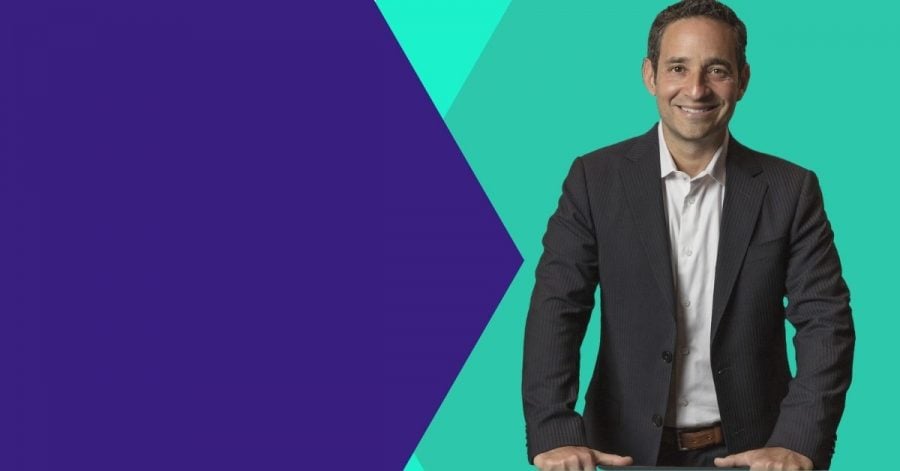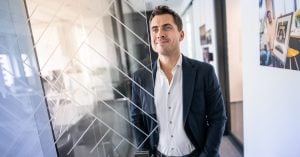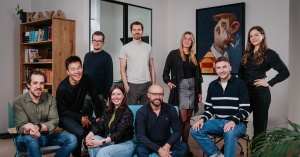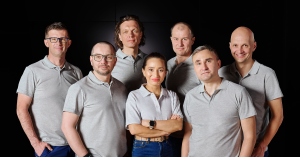“Sometimes when I’m at a party and someone says what do you do for a living. I say I’m a troublemaker. And that always gets the good conversation going.”
An artist turned out to be an entrepreneur and investor, Josh Linkner likes to say he’s a creative troublemaker.
He owns the US-based management consulting company Platypus Labs which advises companies and founders how to reinvent themselves and how to keep their teams motivated. Linkner was the keynote speaker at Bucharest Tech Week last week. Josh started his first company at age of 20, without ever taking a business class. He shared that he tried a few endeavors, experimented, made mistakes, and figured everything as he went about developing the business.
In April, he launched a new book, titled “Big Little Breakthroughs“. The book is about how small, everyday innovations can drive meaningful results. The author encourages building a daily habit of creative micro-innovations. These are less risky and small wins that can add up to big wins, while also building critical skills. He says this is the key to becoming an innovative person.
The Recursive met with Josh Linkner to ask him how founders can keep reinventing themselves to spark their team’s creativity.
The Recursive: How can creativity push a company’s innovation path?
Josh Linkner: In today’s business climate, I don’t think we can afford the luxury of not being creative. We need to carefully take a look at the mindset. If you have 100 people in a company, all should be creative in their way. The best leaders create habits and systems, rituals and rewards that support the creative process.
How can founders and CEOs boost their creativity to then help their teams?
In the book “Big little breakthroughs”, I covered the eight-core mindsets of everyday innovators. One of them is called “start before you’re ready”. The idea behind it is that most of us wait. We wait for permission, until we have a directive, until the capital is raised, or our plan is bulletproof. But the risk of that is that we wait too long and we may miss the opportunity altogether. The most innovative people start anyway and then figure it out as they go.
Another principle is “break it to fix it”. Most of us have been taught: “If it ain’t broke, don’t fix it”. I think the goal here is the opposite. It’s proactively looking at the systems or processes that may be working just fine, but if we deconstruct, examine, and rebuild them, we may find a better approach. In 30 years in business, I’ve learned that too often we overestimate the risk of trying something new, but we underestimate the risk of standing still.
The new business wave is “sell now/build later”, compared to the way things were done in the past when you first built and then you sold your product. What do you think about this shift?
I like the shift, because the risk of developing it in the lab, in the abstract, is you may miss the market altogether. So, I think the idea of bringing things to market more quickly, getting real customer feedback, and doing fast and rapid experimentation is by far the better approach.
From mistakes or success stories did you learn more?
Mistakes, for sure. We don’t enjoy mistakes, it’s not fun to just screw something up, but when we do, that’s a wonderful opportunity to learn. What I try to do is run experiments. The way to embrace creativity is by trying a lot of things; fixed time, fixed money experiments. This week I might try ten experiments, and probably eight of them will fail, but that’s okay because they’re small and cheap. I learned a lot more from little failures because those are great learning moments that are less expensive.
How do you keep reinventing yourself year after year?
I have a saying that I repeat to my team so often they got sick of it. Someday a company will come along and put us out of business. So, it might as well be me. I’ve applied that same principle to myself.
I’m always trying to reinvent every six months or so. I take an assessment of what’s working, what’s not, what’s changing in the world, and how I need to change. In other words, it’s incumbent on all to constantly be in a state of reinvention. And when we do that in small ways every six months or so, it’s way less scary and risky and painful than if we wait too long to get there.
What niche inspires you in the startup ecosystem?
I’m focused on four big things: the future of work, the future of learning, the future of security, and the future of sustainability. I think each of those is big markets that are in flux. Take for example the future of work. Think about how rapidly things are changing post-COVID. You have the gig economy and the creator economy, so the way we work is changing. There will be technology companies that will come in and solve problems that will have massive success, beginning with cybersecurity, which is a big issue for us all.
One final question, how do you think of yourself, more of an artist, a jazz guitar player, or an entrepreneur?
I try to think of myself as an artist. When we hear that word, we think of someone painting on a canvas. But if you’re a lawyer, why can’t you be a legal artist, and if you repair cars, why can’t you be a car mechanic artist? Art is simply the intersection of creativity and skill, and I try to be an artist in all the different things that I pursue. Sometimes that’s playing music, sometimes it’s investing in a company, sometimes it’s starting a new business, sometimes it’s writing a book.
The other thing I would think of myself as sort of Part B is a creative troublemaker. being a troublemaker isn’t doing bad things, but it’s a willingness to confront tradition. It’s a willingness to shake up the status quo to try something new. And so, in that regard, I’m a very proud troublemaker.







